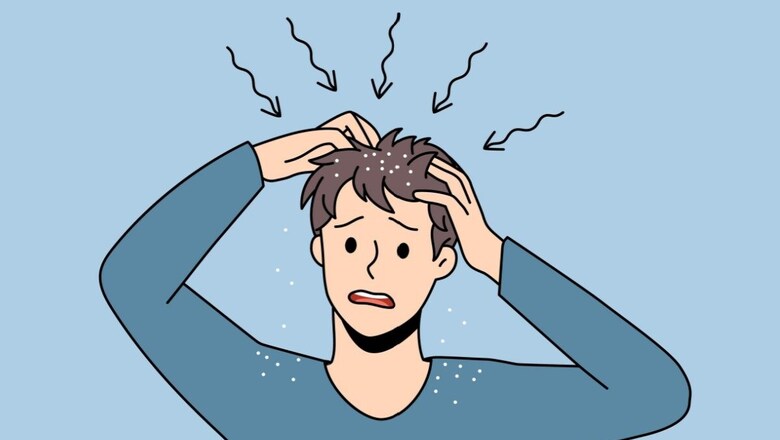
views
Caring for your skin’s overall health extends beyond the face and body. Amid the pursuit of healthy and radiant skin, the scalp often gets overlooked. Scalp folliculitis, a common skin condition, occurs when hair follicles on the scalp become inflamed, resulting in small, itchy bumps or pustules. This condition can be aggravated by the intrusion of bacteria into the pores, triggering acne on the scalp. The specific causes can vary from person to person. In this discussion, we’ll explore various factors contributing to scalp issues and acne, as well as explore natural remedies for addressing scalp acne.
Several factors play a role in the development of a dirty scalp and scalp acne.
- Excess Oil ProductionScalp is just like your facial acne. It can be triggered by an overproduction of sebum, the skin’s natural oil. Excess oil can clog hair follicles which could lead to bacterial growth.
- Lack of HygieneScalp hygiene is equally important for a good scalp. Regular hair washing is essential. If you are not washing your hair every two to three days, it can lead to scalp buildup, especially when it is combined with chemical-infused products like hairspray or mousse. This can also contribute to factors such as excess oil production, dirt, and dead skin cells. A bad hair regime can also lead to excess oil production, dead skin cells, clogged pores, and dirt.
- SweatingOne significant factor that leads to an itchy and acne-prone scalp during the summer season is excessive sweating. The humid conditions during the monsoon season can cause increased sweating in some individuals. High humidity levels contribute to increased sweating and oil secretion. An oily and sweaty scalp attracts more dirt, resulting in lacklustre hair and issues such as itching, dryness, and hair fall.
- Choice of Hair ProductsThe choice of hair products is a crucial aspect of managing and preventing scalp acne. Hair products like styling gels and oils can worsen the condition by clogging follicles and trapping bacteria. Furthermore, the chemicals present in these products can increase dryness, irritation, inflammation, and itching of the scalp.
Here are some effective tips for dealing with an itchy and dry scalp:
- Mild/Medicated ShampooChoose a gentle, sulfate-free shampoo or opt for a medicated shampoo tailored to your specific hair type. Avoid using harsh shampoos as they can lead to a dry scalp. Always remember to check for these ingredients when buying a hair cleanser. Key components that aid in controlling oil production and addressing bacterial infections include salicylic acid, ketoconazole, or selenium sulfide.
- OilingHair oiling is a beneficial method for reducing dryness and itching while delivering essential nutrients to your hair and scalp. It’s an excellent method to improve blood circulation, stimulate hair growth, and reduce hair fall. However, make sure not to leave the oil on for more than 40 minutes to an hour before washing it out. Using a warm compress is a helpful remedy for alleviating scalp acne by reducing inflammation. However, it’s crucial to avoid excessive heat, as it can exacerbate the irritation. A warm compress can provide soothing relief and aid in the healing process without causing harm when used appropriately.
- Home RemediesApart from expensive professional treatment, several home remedies like tea tree oil, apple cider vinegar, and aloe vera can also help speed up the recovery process for scalp acne.
- Consult DermatologistSeeking advice from a dermatologist is paramount if your efforts to treat scalp acne have proven ineffective. Professional medical guidance is vital for maintaining a healthy lifestyle in such cases.




















Comments
0 comment